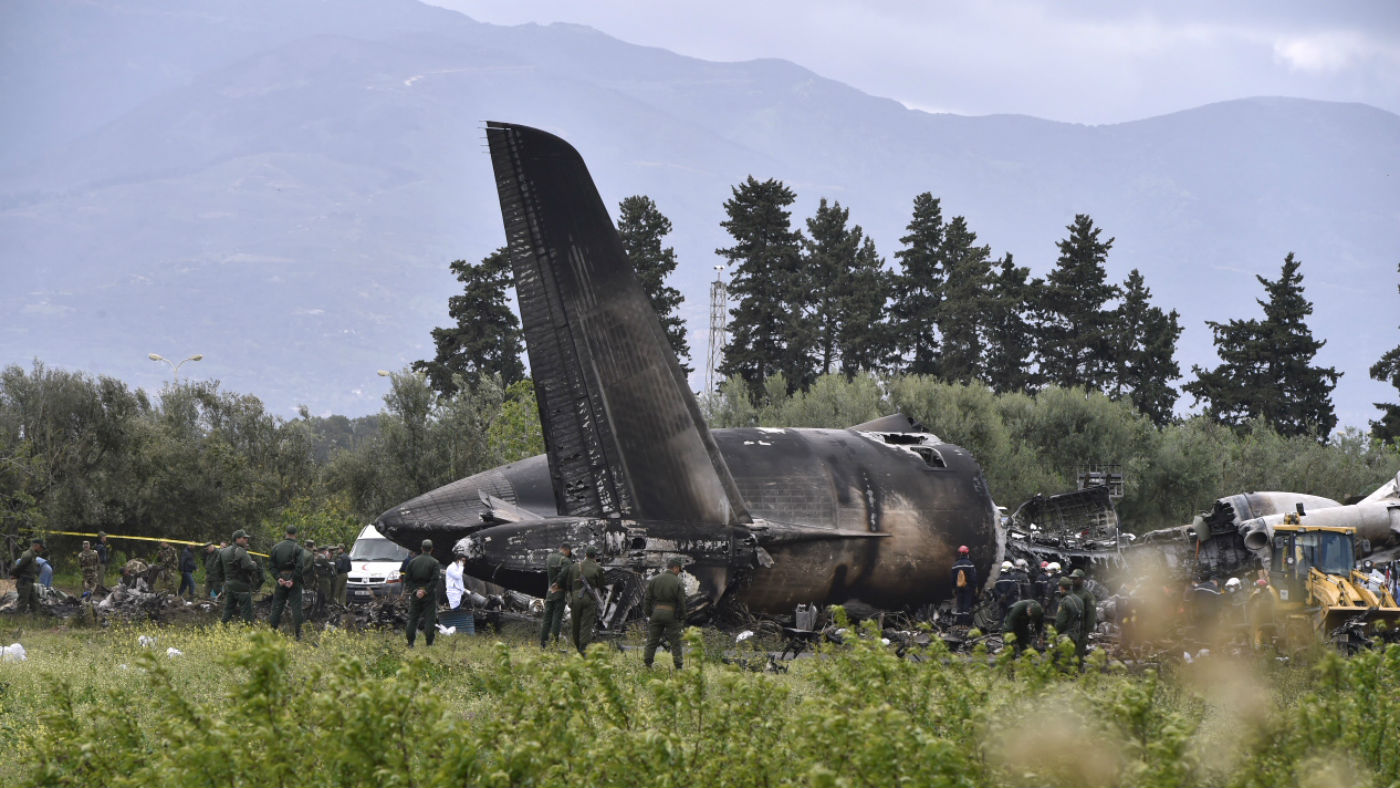More than 250 people killed as military plane crashes in Algeria
Aircraft came down near Algiers in deadliest aviation disaster since MH17

A free daily email with the biggest news stories of the day – and the best features from TheWeek.com
You are now subscribed
Your newsletter sign-up was successful
At least 257 people have been killed after an Algerian military plane crashed near the capital Algiers this morning, according to state media.
A statement by Algeria’s Defence Ministry said that an investigation had been launched into the cause of the crash. Ten crew members and 247 passengers died, the statement added.
The plane came down in farmland close to the Boufarik air base, southwest of Algiers. It remains unclear whether there are any survivors.
The Week
Escape your echo chamber. Get the facts behind the news, plus analysis from multiple perspectives.

Sign up for The Week's Free Newsletters
From our morning news briefing to a weekly Good News Newsletter, get the best of The Week delivered directly to your inbox.
From our morning news briefing to a weekly Good News Newsletter, get the best of The Week delivered directly to your inbox.
“Dozens of bodies were seen in numbered bags as paramedics and firefighters worked at the crash site,” CNN reports. “Cranes at the site have begun trying to move some of the debris.”
The plane, a Soviet-designed Ilyushin Il-76, was heading to Bechar, in the southwest of the country.
According to the BBC, the incident is the deadliest plane crash since July 2014, when Malaysia Airlines flight MH17 was shot down over eastern Ukraine, killing all 298 people on board.
Algeria has experienced several other air disasters in recent years.
A free daily email with the biggest news stories of the day – and the best features from TheWeek.com
In February 2014, 77 people died when a military Hercules C-130 plane carrying army personnel and their families crashed.
That same year, an Air Algerie flight from Burkina Faso to Algiers crashed in northern Mali, killing all 116 people on board.
-
 Local elections 2026: where are they and who is expected to win?
Local elections 2026: where are they and who is expected to win?The Explainer Labour is braced for heavy losses and U-turn on postponing some council elections hasn’t helped the party’s prospects
-
 6 of the world’s most accessible destinations
6 of the world’s most accessible destinationsThe Week Recommends Experience all of Berlin, Singapore and Sydney
-
 How the FCC’s ‘equal time’ rule works
How the FCC’s ‘equal time’ rule worksIn the Spotlight The law is at the heart of the Colbert-CBS conflict
-
 Epstein files topple law CEO, roil UK government
Epstein files topple law CEO, roil UK governmentSpeed Read Peter Mandelson, Britain’s former ambassador to the US, is caught up in the scandal
-
 Iran and US prepare to meet after skirmishes
Iran and US prepare to meet after skirmishesSpeed Read The incident comes amid heightened tensions in the Middle East
-
 Israel retrieves final hostage’s body from Gaza
Israel retrieves final hostage’s body from GazaSpeed Read The 24-year-old police officer was killed during the initial Hamas attack
-
 China’s Xi targets top general in growing purge
China’s Xi targets top general in growing purgeSpeed Read Zhang Youxia is being investigated over ‘grave violations’ of the law
-
 Panama and Canada are negotiating over a crucial copper mine
Panama and Canada are negotiating over a crucial copper mineIn the Spotlight Panama is set to make a final decision on the mine this summer
-
 Why Greenland’s natural resources are nearly impossible to mine
Why Greenland’s natural resources are nearly impossible to mineThe Explainer The country’s natural landscape makes the task extremely difficult
-
 Iran cuts internet as protests escalate
Iran cuts internet as protests escalateSpeed Reada Government buildings across the country have been set on fire
-
 US nabs ‘shadow’ tanker claimed by Russia
US nabs ‘shadow’ tanker claimed by RussiaSpeed Read The ship was one of two vessels seized by the US military